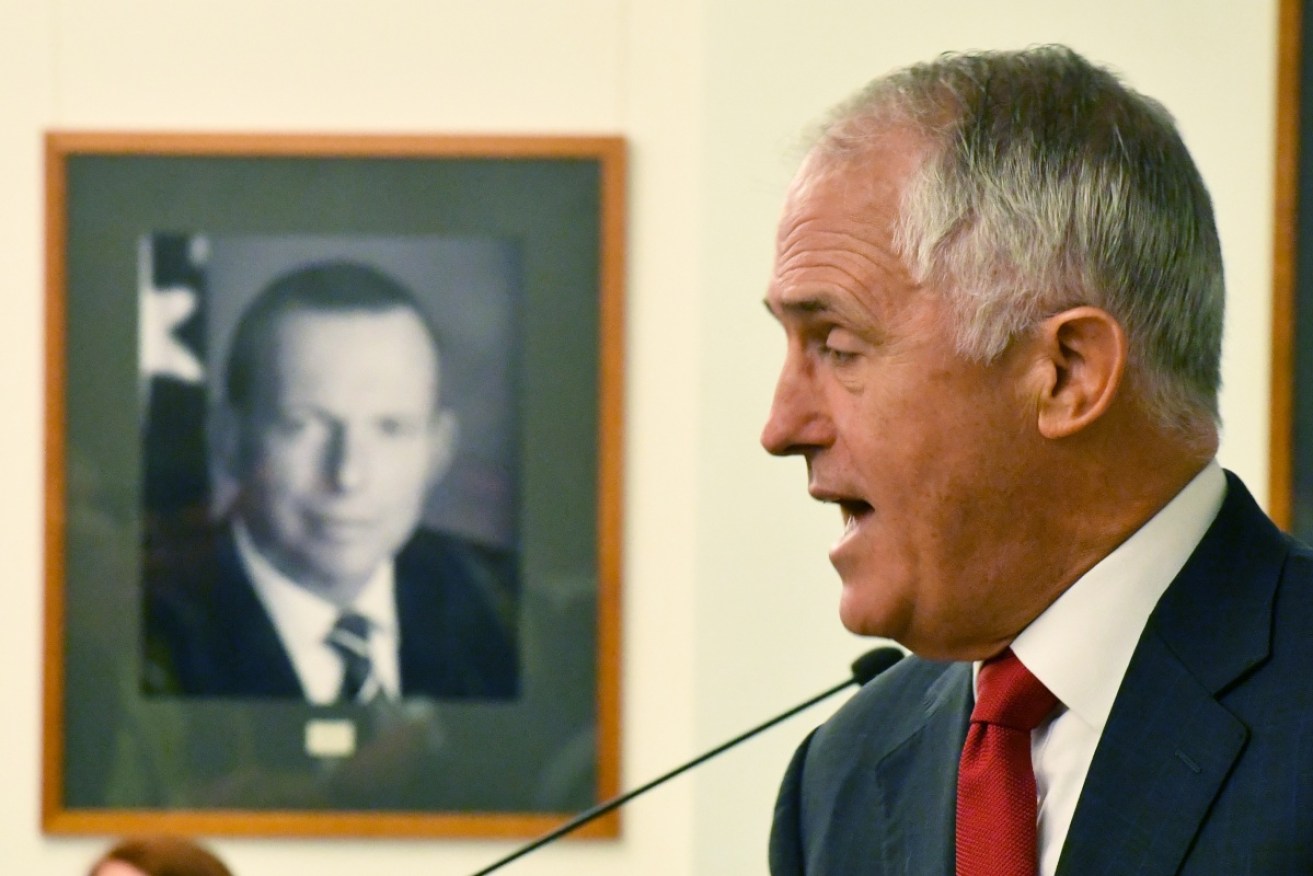‘Malcolm Turnbull’s energy hoax is worse than Tony Abbott’s’


Malcolm Turnbull was haunted by Tony Abbott and the poor poll numbers he cited as a rationale for ousting Mr Abbott as PM. Photo: AAP
When Malcolm Turnbull became Prime Minister in 2015, many thought the influence of coal and gas industry lobbyists on the government would be reduced.
Apparently not.
A string of reports in recent days reveal a weakened Prime Minister falling into line with the “coal is good for humanity” views of his predecessor.
Here’s a taste:
– The government has ignored the recommendations of an independent selection panel and appointed Minerals Council chairwoman Vanessa Guthrie to the board of the ABC – which last year was accused, and then cleared, of ‘bias’ against fossil fuels.

Battery vendors complain that the ‘ignorance’ of regulators and ministers his holding them back.
– It has consistently blamed renewable generation capacity for the blackouts and load-shedding in South Australia, when, as the Australian Workers Union responded in a letter to the Prime Minister on Monday; “during recent energy shortages a South Australian gas plant sat dormant, having ceased operating due to the high cost of natural gas”.
– It has openly canvassed the possibility of extending the mandate of the Clean Energy Finance Corporation to lend money for ‘clean coal’ projects, despite the fact that even the cleanest-burning coal-fired power station emits around double the level of carbon currently written into the CEFC’s mandate.
– And while the PM has mentioned large-scale renewables storage projects in Parliament, and has installed his own solar-and-battery system at his Point Piper mansion, government ministers continue to mock Labor’s renewable target of 50 per cent by 2030. What they have failed to understand yet is that consumers will lead that charge – Labor has just chosen to take credit for an unstoppable technological revolution.
False dichotomy
Energy policy is being framed by the Turnbull government, falsely, as a simple choice between ‘cheap, reliable fossil fuel baseload’ and ‘expensive, unreliable, intermittent renewables’.
It is nothing like that. As covered previously, a host of new technologies are transforming the grid from one of centrally-generated power sold to distributed customers, to one of distributed power generation sold back and forth between individuals and businesses. The grid will still be there, but its purpose is being transformed.
And as it happens, a growing number of studies have demonstrated that building new coal-fired power generation is far more expensive in terms of the ‘levellised cost of energy’ than wind and solar coupled with pumped-hydro storage.
Blocking progress
That revolution is taking place around the world, but in Australia a heavy cloak of ignorance has been thrown over the nation by the efforts of first the Abbott government’s war against the carbon tax, and now by the Turnbull government.
The battery storage revolution, fundamental to the way homes and businesses will produce, store and consume energy in future, is hitting hurdles due to the “ignorance of regulators and ministers” according to industry figures.

Coal has been ‘good for humanity’ but is being overtaken by cleaner sources of energy.
This was all expected during the ruthless politicking of the Abbott era, but few expected it to get worse under Mr Turnbull – the leader who had lost the leadership of the Liberal Party for holding a principled line on carbon pricing.
But Mr Turnbull’s hopelessly weak position within his own party room has left him no political capital to take on the big coal and gas interests.
He is forced instead to continue an epic “hoax” on power consumers, as veteran journalist Alan Kohler put it earlier this month.
Kohler wrote: “By taking the low road in 2009 instead of the high road, and deciding to mislead Australians about the true cost of energy, the Liberal Party condemned the country to a decade of confusion and stasis on energy policy.”
Those who thought that would get better under the Turnbull leadership were very wrong indeed.
To read more columns by Rob Burgess click here.








